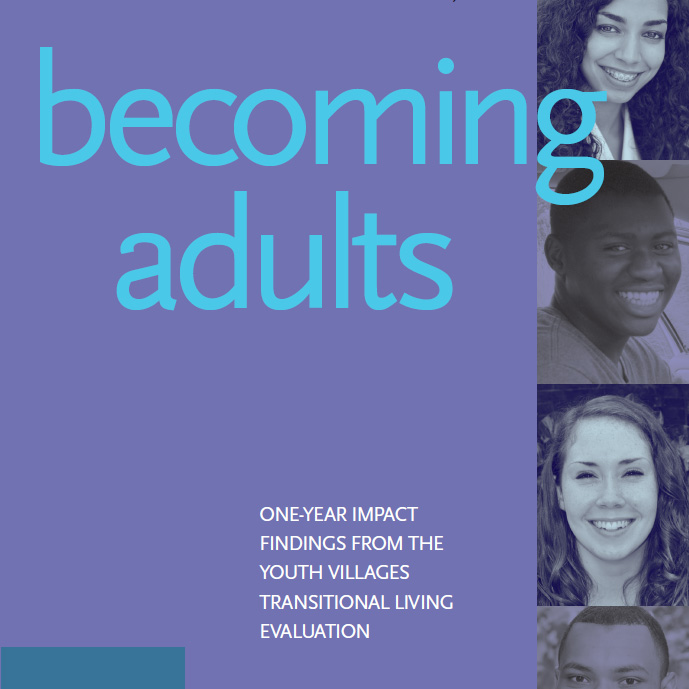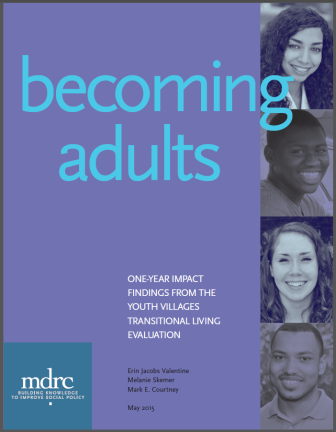At long last, there is good news about ways to help youth in foster care and those who have been in custody in the juvenile justice system as they move into adulthood.
Intensive, individualized care based on clinically sound practices can improve young people’s financial and emotional well-being and improve their chances of getting housing, a study of a transitional living program in Tennessee has found.
The study evaluated the program of YVLifeSet, formerly called Youth Villages Transitional Living Program, in Tennessee. It also operates programs in Florida, Georgia, Massachusetts, Mississippi, North Carolina and Oregon.
Investigators followed for a year 1,300 youth who participated in the study. All were randomly assigned to the program or to a control group.
Results showed the program improved outcomes in three of six key areas of well-being, including economic well-being, housing and outcomes related to health and safety. The young people in the program had higher earnings, were more likely to have gained housing and were less likely to be involved in violent relationships.
The findings are especially important, the study authors wrote, because youth who have been in foster care, in custody in the juvenile justice system — or both — typically face great challenges as they move into adulthood. Many are traumatized or abused, and haven’t had the opportunity to learn important life skills.
As they move into adulthood, the lack of life skills becomes even more of a problem. While others in their age group who come from stable families often get help from parents, youth who have lived several years in foster care or been in juvenile custody have few adults who can help them financially or socially. Those who have suffered trauma may face additional issues.
While various programs have tried to help these youth, success has been limited. The transitional living program offers intensive, one-hour, one-on-one counseling sessions with youth to teach them such skills as how to manage money and how to look for jobs.
“This program [at YVLifeSet] was thought through very well,” said Mark Courtney, lead author and professor in the School of Social Science Administration at the University of Chicago. One of its strengths, he said, is that it recognizes the individuality of each young person, with trained counselors working to meet each one’s needs. Each counselor is limited to a caseload of eight young people, which allows him or her to get to know them and to tailor interventions and support.
“Young people have different needs and different desires,” he said.
The individualized support seemed to have made a difference, Courtney said. That said, “I don’t think the story’s complete yet. We need more study.”
While this study showed improved outcomes in some measures for those youth who received the intensive interventions, three areas showed no differences between the two groups. The differences in education, social support and criminal involvement were minor, Courtney said. It’s important to find out why the interventions didn’t work in those areas, he said.
In many areas, “we’ve got resources to help people through this transition, but how do we do that well?” Courtney said.
Connie Mills, a spokeswoman for YVLifeSet, said her organization is committed to helping these vulnerable youth who often have suffered great loss, trauma and abuse.
“If we don’t help them, they are going to fail, and often fail spectacularly,” she said. “But the exciting thing is knowing that we can. If we can change one person by helping him get a degree, we have changed a whole family.”
The study, conducted by MDRC, a nonprofit, nonpartisan education and social policy research firm, was funded by the Edna McConnell Clark Foundation, the Annie E. Casey Foundation and the Bill and Melinda Gates Foundation. The results were announced late Monday night.

